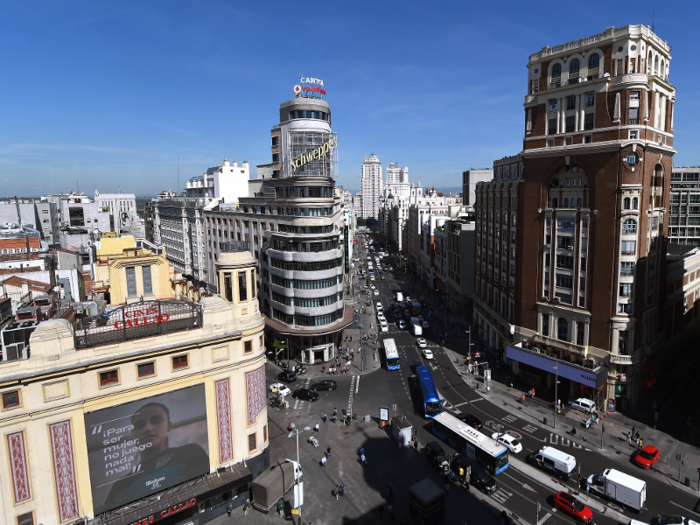
Spain first introduced a wealth tax (otherwise known as Patrimonio) in 1977, two years after the death of its authoritarian leader Francisco Franco.
It kept the tax until 2008 when the global financial crisis threw the Spanish economy into a tailspin. The tax was temporarily reinstated three years later in 2011 to boost public finances, but the national government later decided to make it permanent again.
Spain now taxes fortunes above €700,000 at 0.2%, which gradually increases to 2.5% on net worth above €10.7 million depending on the region. People living in the Spanish capital of Madrid are exempt from the tax.
Its never been a substantial generator of tax money for the Spanish government. Data from the OECD shows that a net wealth tax on individuals made up 0.55 percent of all tax revenues in 2017.

Norway's wealth tax was first introduced in 1892. The central government levies a tax rate of 0.15% while municipalities impose a 0.7% rate, bringing the maximum to 0.85%.
Only wealth above 1.48 million krona, or roughly $174,000, is taxed. That figure is doubled for married couples.
A 2012 study from Norwegian researchers reported that average wealth per household totaled 1.6 million krona, or just over $166,000, indicating that most of the population paid some form of the tax.
The amount of revenue generated has largely been the same over the last two decades. The OECD reported the wealth tax constituted 1.1% of all wealth tax revenues in Norway in 2017.

Switzerland first levied a wealth tax in 1840 and its been a pillar of their tax structure since. They're self-reported and paid annually, with no institutional tracking of wealth. Tax authorities can only access personal bank information if a person is suspected of a crime.
The country has a decentralized tax system, and the rate varies around its 26 cantons. But it ranges between 0.3% and 1% of taxpayers' net worth. They tend to be highest in the French-speaking regions of the west and lower in the German-speaking cantons of central Switzerland.
The tax-free threshold for a married couple without children is between 50,000 Swiss francs ($50,370) to 250,000 Swiss francs ($251,856). "The wealth tax thus affects much of the middle class in addition to the wealthiest families," one study on the Swiss wealth tax found.
Compared to the other three European countries, the Swiss wealth tax has generated consistent revenue so far in the 21st century and it brought the largest share. OECD data shows that wealth taxes made up 3.6% of all Swiss tax revenue in 2017, and it's been above 3% since 2000.

Belgium introduced a limited wealth tax on security holdings last year, the Financial Times reported.
The Belgian government enacted a 0.15% tax on the securities accounts of individuals with holdings over €500,000, or $553,000.
The country already had some of the highest tax rates in Europe, though it proved hospitable for French entrepreneurs and businesspeople seeking to park their assets in a neighboring country before Paris eliminated the wealth tax.
 Poonch Terrorist Attack: One Indian Air Force soldier dies, five injured; Patrolling intensifies across J&K
Poonch Terrorist Attack: One Indian Air Force soldier dies, five injured; Patrolling intensifies across J&K
 The Role of AI in Journalism
The Role of AI in Journalism
 10 incredible Indian destinations for family summer holidays in 2024
10 incredible Indian destinations for family summer holidays in 2024

Copyright © 2024. Times Internet Limited. All rights reserved.For reprint rights. Times Syndication Service.